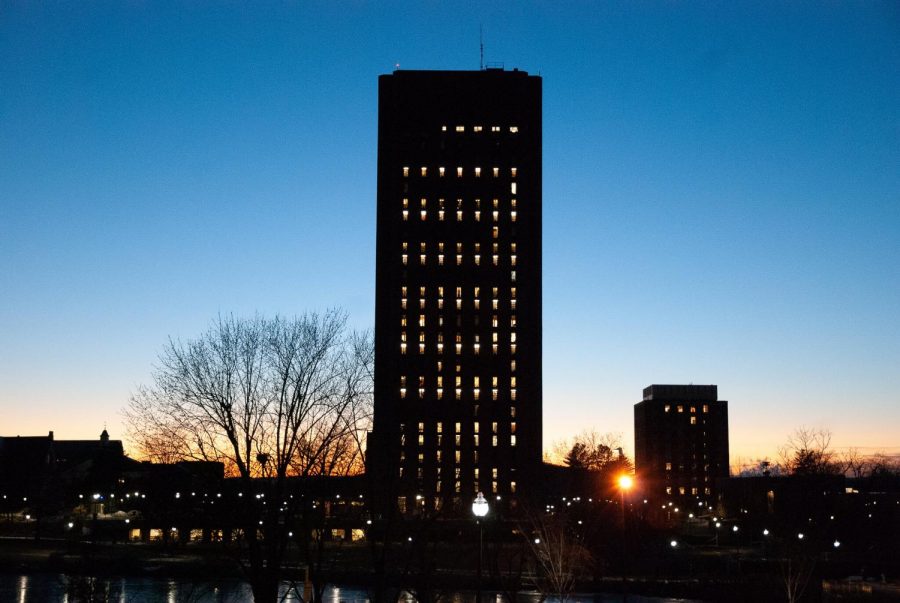Historian Frank Snowden, author of a recent book called “Epidemics and Society,” said that epidemics are particularly interesting events in human history because, among other reasons, they “hold up a mirror to society.” Not only do they raise essential questions about life and death, the legitimacy of established authority, religion and the strength of pre-existing social relationships, they affect all societies in unique ways, because “each society has particular vulnerabilities dependent on the kind of society [they] are.” COVID-19 has already drastically changed the way everyone goes about their daily life, but the most important changes will come after this crisis, whether we’ve realized they’ve come or not. What many of these changes will look like is entirely up to us. Will we emerge from this as a new nation, geared with a newfound sense of reform and conviction, or will we dig in our heels and become more apathetic than before? We need to use this time to reflect on what this pandemic has revealed about ourselves, our society and our world as a whole if we want to truly overcome this epidemic.
In many ways, a sense of peace and comfort is an anomaly in world history. As the economist Peter Bauer wrote, “Poverty has no causes, wealth has causes.” This means that the condition of poverty and necessity has not only existed forever, but it is the starting point of human civilization. We have become a more affluent and peaceful world overtime due to the advances of modern science and thought so that poverty, desolation and warfare are considered relatively low in comparison to historical rates of poverty. In our age of constant progress and growth, disasters tend to stick out because they highlight weaknesses in our society.
Even though we have been able to increase lifespans and raise overall living conditions throughout the world, we failed to effectively stop the spread of COVID-19. There is nothing we can do to fix it besides waiting for the virus to run its course and staying home. What is even more disheartening is that this type of threat was not completely unknown to the world. Not only have we dealt with large-scale spread of infectious diseases throughout history, but we have dealt specifically with other types of coronaviruses in the past. We have also received countless warnings from epidemiologists leading up to this outbreak that the world was susceptible to a pandemic attacking the respiratory system and that one would be coming in the near future. What this shows is that the Coronavirus capitalized not only on our lack of immunity, but on our lack of preparedness as well.
The COVID-19 pandemic has also placed a spotlight on other problems indirectly affected by the pandemic. Why is it that COVID-19 affects African Americans and Latinos more than Whites, according to data from New York? Why is it that we still seem unable to put aside partisan fights even though historically crises have allowed people to come together against a common enemy? George W. Bush’s approval rating after 9/11 was about 90 percent and President Trump’s is currently about 49 percent. Furthermore, do the similarities between this crisis and the potential climate catastrophe seem at all telling? There are a number of questions like these that the virus has brought to light that must be addressed in order to effectively grapple with this crisis.
We should not think about these questions as idle concerns; they are reflections of our very selves. The problems discussed in our political discourse before this crisis oftentimes couldn’t mobilize public support for reform because the issues were distant to the average citizen. Not that this level of apathy will disappear, but COVID-19 has made political issues much more personal. Everyone risks losing their life during the pandemic. What the government, and society as a whole does to respond to this affects everyone. If anything good is to come out of this disaster, it will be a renewed sense of reform supported by the collective memory of this tragedy. We could use this pandemic to learn from our mistakes and undertake vast reforms in epidemiology, healthcare, working conditions and other areas.
None of this will happen if we decide that our goal in all of this is just to return to normal. The desire to return to the sense of comfort and normalcy we had beforehand is felt by all, but we really cannot go back to normal. What this crisis has revealed is that the threat of danger we are all experiencing right now didn’t just suddenly appear with COVID-19; this danger has always been present. We were all blissfully unaware, going about our daily lives not comprehending that at any moment, a virus could make the jump to humans and cause international shutdown. While it’s a pretty painful way to have our eyes opened to the situation, we would be fools decide to close them again.
Benjamin Schnurr is a Collegian contributor and can be reached at [email protected].



















